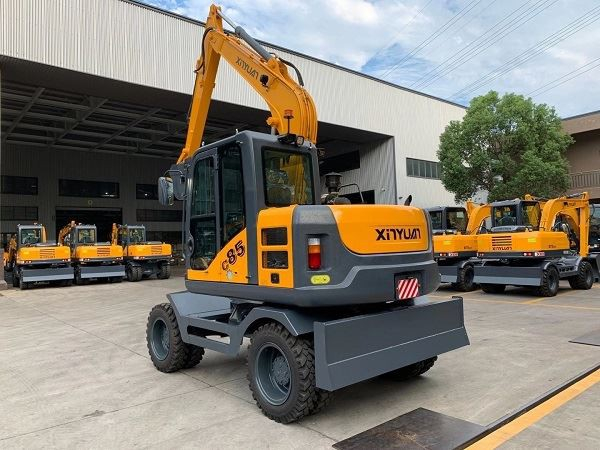The new excavator has not been used for a long time, but the hydraulic cylinder has been faulty, which annoys many operators. In daily work, excavator failure is accumulated due to long-term improper operation. This article will summarize and explain the wrong operation that is easy to cause hydraulic cylinder failure in daily operation, which is only for reference.
1. The working device is not fully recovered before walking
When the working device of the excavator is not fully retracted, the bucket is easy to hit the rock, and the piston rod of the hydraulic cylinder will produce a large load, resulting in the internal damage of the hydraulic cylinder and the cracking around the pin shaft.
2. Hydraulic oil mixed with water
If the hydraulic oil is mixed with water, the hydraulic oil is easy to emulsify and deteriorate, and the emulsified hydraulic oil entering the hydraulic system will lead to rust of parts. The rust slag flows in the hydraulic system for a long time, the hydraulic pressure will be affected, and the action of large and small arms and bucket will become weak.
3. Excavate when the hydraulic cylinder rod extends to the limit
The hydraulic cylinder of the excavator expands and contracts to the end position for excavation operation. In this case, the working cylinder and frame will produce large load. The impact of bucket teeth and each axle pin may cause internal damage of hydraulic cylinder and affect other hydraulic components.
4. The rear part of the track floats for excavation
Use the floating force at the rear of the excavator body to carry out excavation. When the bucket is separated from the rock and the car body falls, it will produce a large load on the bucket, counterweight, frame, slewing ring, etc., which is easy to cause damage.
5. The excavator starts working before it stops
When the excavator runs on uneven roads, such as gravel roads, and starts working when the excavator does not stop stably, it will cause uneven stress on the lower frame and damage the lower frame for a long time. In this case, it is best to pad some soil below to make the ground stable before operation.
6. The frequency of breaker is too high
If the breaker is used for a long time, the piston rod vibrates at high frequency and is subjected to excessive force, which is easy to cause bending and fracture of the piston rod.

